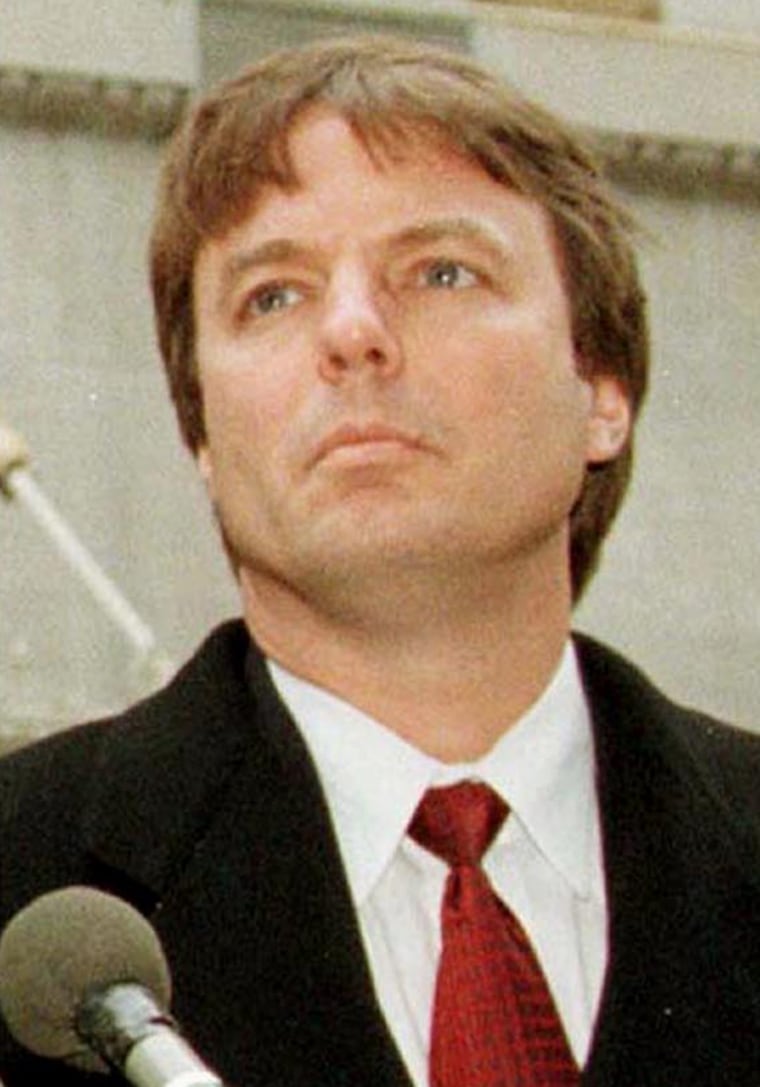I have met a lot of ambitious people in my time here, but none in a greater hurry than the man I met across a table at Kinkead’s restaurant on Pennsylvania Avenue, five blocks from the White House, in February 1999. He had just arrived in town, newly elected to the Senate, but had so clearly, so unabashedly, set his sights on the presidency that I said to myself — and to just about everyone I knew — that this was a man to watch. Too bad I didn’t write it at the time. I’d be looking like a seer right now.
It was, of course, John Edwards. The dinner had been arranged by his friend, pollster and fellow North Carolinian, Harrison Hickman. For two hours, Edwards was the charming, articulate, country-boy-comes-to-the-city courtroom lawyer the world has since discovered. I assumed that there had to be a catch. I asked Hickman, a scholarly, unsentimental sort, whether there was more to the man than the grin of a grifter with a winning poker hand. Indeed there was, Hickman assured me. The sky was the limit.
Exactly five years later, Edwards has gone from a freshman senator with $20 million in the bank and a limitless ambition in his heart to be one of two finalists for the Democratic presidential nomination. To call his rise meteoric is to understate the case. If meteors were cars, this one’s a Maserati.
A tendency to be dismissed
Republicans and Democratic foes alike tend to dismiss Edwards as a guy who quit the Senate to run for president once he realized he’d have a hard time getting re-elected in socially conservative North Carolina in 2004. That critique completely misses the point, on two levels. For one, I’m not convinced Edwards couldn’t have won, had he wanted to, though his “re-elect” numbers admittedly were low. But one reason they were so low is that, from the moment he arrived in the capital, Edwards went “national,” aligning himself with the views of presidential primary voters he already was thinking of wooing. He had no desire for long-term residence in the Senate.
But now, as we like to say in news magazine headlines, comes the hard part. For the first time, the vroom-vroom of his fast-moving career seems headed for a brick wall. He has tough choices to make if he really wants to try to wrest the nomination away from Sen. John Kerry. He can’t be mister nice guy. He has to make enemies in his own party. He has to get ready to play defense. He has to make the case — as if in a courtroom — not only for why he is the right choice for the Dems but for why Kerry is a bad one.
The “party leadership,” though that is pretty much an oxymoron in the Democratic Party, seems willing, if not eager, to gather around the Kerry banner. The AFL-CIO is doing so; the Teamsters (back in the Democratic fold this year) already have. Elected officials from coast to coast don’t swoon over Kerry, but he will do, if that’s what primary voters want. So far, by and large, they seem to: Kerry has won 15 of 17 contests, Edwards one.
From the start, Edwards has run a near flawless national career and campaign. But now it gets exponentially tougher. Does he go after Kerry big time? If he does, does he create enmities that will last — and hamper another Edwards presidential bid in 2008, if this one doesn’t work out? How will he react when the Kerry camp goes negative on him, as they almost surely will? (They have nothing to lose: This is Kerry’s only shot at the prize.)
Daunting math
The delegate math is daunting: Nothing short of a Kerry collapse, and an Edwards sweep of Super Tuesday, will reverse the numbers sufficiently. The media coverage is intense, and Edwards is adept at riding it, but what the press giveth it can take away in a nanosecond, if Edwards remains too nice to be a compelling story. Edwards wanted a two-man race and now that he’s got it the media is going to want a real fight to fill the seats on cable.
But people have been underestimating Edwards ever since he left Robbins, N.C., for college. Too “light,” too pretty, too inexperienced, too slick, too Southern, whatever. He keeps gaining on ’em anyway.
A few days before the Iowa caucuses, I rode to the airport in Des Moines with him. By that time, Edwards was drawing big crowds and knew that he was going to do well there, though finishing second (which he did) was not on the radar screen. I told him that, whatever else happened, it seemed likely that Iowa was going to make it all seem worthwhile — that, if nothing else, he’d set himself up for 2008, and put himself on a veep shortlist in 2004.
He grinned his usual high-wattage grin, but it quickly dissolved into a more serious, sympathetic look, as if he were addressing someone who was too dumb to Get It. “This is just the start,” he said. “Who knows how far it can go?”
But he sounded like he thought he already knew the answer.
